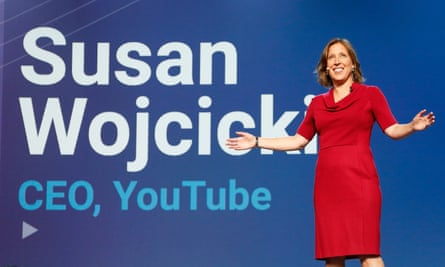
Search engines have been a major part of our online experience since the early 1990s, when the booming growth of the world wide web created a need to sort and present information in response to user queries.
The first users to traverse the “information superhighway” had a simple job of it. It was akin to pootling along to your local supermarket: you knew the roads, where to turn off, and how to get there.
But the exponential growth of the web meant that it quickly became impossible for people to remember where they’d found that pertinent bit of information they wanted. The main road became ensnared in a spider’s web of byways. New crossings, roundabouts and turnoffs appeared. Streets you’d driven along for ages led to dead ends. Others changed course.
Search engines solved that by trying to categorise information based on queries you sent. Initially, they were bad. Thanks to Google, and a new way of crawling and categorising the web, they quickly became very good.
In the year 2000, Google became the world’s largest search engine. The company became synonymous with search. We now “Google” things, rather than search for them, just as we hoover, rather than vacuum.
Except now, in 2023 Google may no longer be synonymous with search. The rise of ChatGPT – the revolutionary large language model (LLM) that can “talk” to users, which I spoke about on the Guardian’s Today in Focus podcast – has been so significant and quick since its November 2022 release that it has thrown the future of search into flux. Microsoft has invested $10bn into ChatGPT’s creator, OpenAI, and in return has the rights to use a souped-up version of the technology in its search engine, Bing. In response, Google has announced its own chat-enabled search tool, named Bard, designed to head off the enemy at the gates.
Neither work particularly well, it seems. Both made embarrassingly rudimentary mistakes in their much-hyped public demos, and I’ve had access to the ChatGPT version of Bing – whose codename is “Sydney”, as some enterprising hackers got the chatbot to divulge – for about a week. I wasn’t unimpressed, as this account of my time with Sydney so far shows, but I also didn’t really see the point. LLMs are a technology that has some annoying foibles when used in search – like confidently making things up when it doesn’t know the answer to a question – that don’t seem to mesh well with what we use Google and others for.
For now, it looks like Google and Microsoft will shove chat-enabled search engines down our throats because they want the kudos of being first to this technology. But my main question is whether it’ll stick. (Microsoft appears to be having second thoughts about the rollout already: on Friday, it limited the length of interactions with Sydney after the chatbot showed a tendency to express infatuation for those it conversed with for hours.)
I still think that we’re in the most interesting time for search since Google became the 500lb gorilla in the room back in the late 1990s. I just don’t know if the way we’re using the chat functionality now will necessarily be how we use it in the future. “I think ChatGPT is good for complex queries that there’s no direct answers, and summaries would be very beneficial,” William Wang, director of the Centre for Responsible Machine Learning at the University of California, Santa Barbara, tells me. “Simple queries: definitely no need for ChatGPT.”
Wang believes the interface we see right now is just the start, and things will get better – quickly. Others aren’t sure if search is the right use case for chat-based LLMs. “Thinking of them as a new form of search is just wrong,” says Julian Togelius, associate professor in AI at New York University. Togelius recommends that we take the decision on how the technology is used out of the hands of AI researchers or tech executives, and into the hands of ordinary users to see what they develop. It’s a subversion of the old phrase: come, and they will build.
YouTube: Up next
The tech world is increasingly chaotic, with huge, massive stories crashing into the back of each other like a multi-car pileup. In any other week, news that YouTube’s near-decade-long CEO, Susan Wojcicki, would be stepping down would dominate the tech agenda. This week it was a distant third behind the battle for search and … whatever Elon Musk is doing nowadays (mostly firing people who dare to say we’re all growing tired of his shenanigans).
after newsletter promotion
In part I think the news – which I tried to contextualise for Fast Company here – didn’t make as big a splash as it could because of who she was replaced by. Neal Mohan has been Wojcicki’s deputy for a while and is the continuity candidate. “Susan has been running YouTube for the majority of my run on the platform, she’s been wonderful to work with in every capacity,” top YouTuber Casey Neistat told me. “I am sad to see her go.” But he also added: “YouTube made a great decision in having Neal assume her leadership role.”
But it’s also, I think, an indication of how the world of online video has shifted. YouTube has been supplanted by TikTok, which on Friday announced it had crossed 150 million users in Europe every month.
The battle between YouTube and TikTok is an interesting one, because as TikTok increasingly moves into longer form content, YouTube is pushing Shorts, its TikTok-alike. Who’ll win? Who knows. But it’ll be interesting to see the fight play out.
The wider TechScape
-
ChatGPT is dominating the dialogue at present. Kevin Roose of the New York Times did the most to dig under the skin of Sydney, Bing’s ChatGPT-powered persona, over the course of a wild two-hour-long conversation. As counterbalance, however, and before you get worried about AI taking over the world, read this by Stephen Wolfram for a tonic of reality.
-
This week marks the first anniversary of Russia’s invasion of Ukraine – which was one of Europe’s underappreciated tech powerhouses. This piece for The Information outlines how Ukraine’s startups evolved to handle the pressures of war.
-
Elon Musk is potentially jeopardising the safety of around 4.8 million users by announcing he’ll turn off access to SMS-based two-factor authentication next month … unless you pay for Twitter Blue. Musk is making the move, he claims, because he believes he’s being “scammed” by telecom companies out of $60 million a year for sending text messages. It’s an issue, because many users are unlikely to make the change to authenticator apps, which will remain free.



